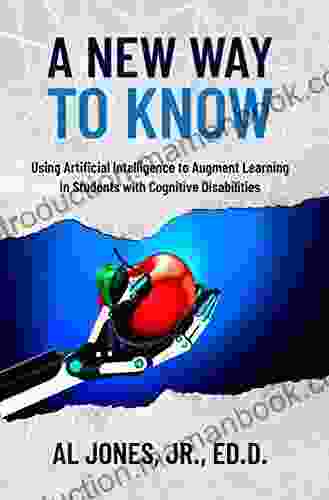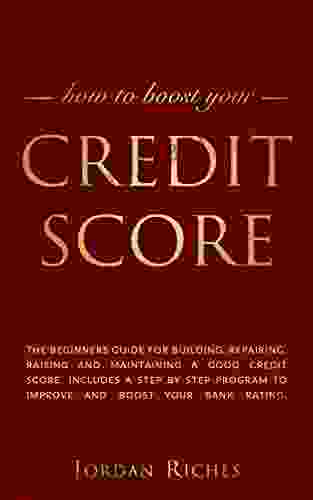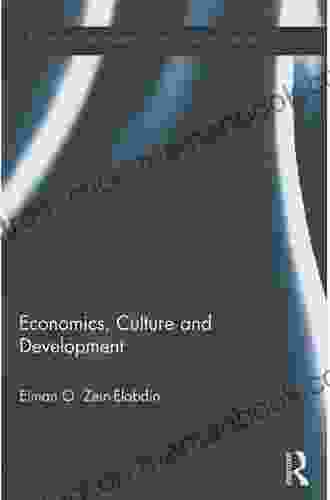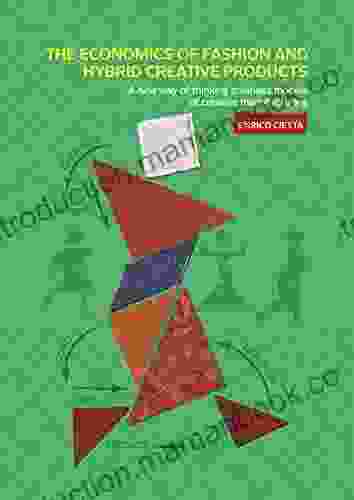Economics, Culture, and Development: A Comprehensive Introduction

5 out of 5
| Language | : | English |
| File size | : | 2033 KB |
| Text-to-Speech | : | Enabled |
| Screen Reader | : | Supported |
| Enhanced typesetting | : | Enabled |
| Word Wise | : | Enabled |
| Print length | : | 242 pages |
Exploring the Interconnections between Economy, Society, and Values
The relationship between economics, culture, and development is a complex and multifaceted one, with each element influencing and shaping the others. This article aims to provide a comprehensive to this topic, exploring the various ways in which these factors interact and examining their implications for economic growth, social progress, and human well-being.
Economics is defined as the study of how individuals and societies allocate their scarce resources - such as land, labor, and capital - in order to satisfy their wants and needs. Culture, on the other hand, refers to the shared beliefs, values, and behaviors of a group of people, while development encompasses the broader process of economic, social, and political transformation that a society undergoes over time.
Culture influences economics in a number of ways. For example, cultural values can influence consumer preferences, which in turn affect the production and distribution of goods and services. Similarly, cultural norms and institutions can shape labor market outcomes, such as wages and working conditions.
Economics, in turn, can influence culture. For example, economic growth can lead to changes in social norms and values, as people adopt new lifestyles and aspirations. Similarly, economic inequality can lead to social unrest, which can in turn affect political stability and cultural cohesion.
The relationship between economics, culture, and development is complex and dynamic, with each element influencing the others in a variety of ways. By understanding these interconnections, we can better understand the challenges and opportunities facing societies around the world and work towards more sustainable and inclusive development.
Key Concepts in the Study of Economics, Culture, and Development
There are a number of key concepts that are central to the study of economics, culture, and development, including:
- Social capital: This refers to the networks and relationships that exist between people and institutions in a society. Social capital is essential for economic development, as it facilitates cooperation, trust, and information sharing.
- Human capital: This refers to the skills, knowledge, and abilities of a population. Human capital is a key driver of economic growth, as it allows people to be more productive and innovative.
- Institutions: This refers to the rules and norms that govern a society. Institutions can be formal (e.g., laws and regulations) or informal (e.g., customs and traditions). Institutions play a crucial role in economic development, as they provide a framework for economic activity and reduce uncertainty.
- Path dependence: This refers to the idea that the future development of a society is constrained by its past. Path dependence can be seen in a variety of areas, such as economic growth, technological development, and political stability.
These are just a few of the many key concepts that are relevant to the study of economics, culture, and development. By understanding these concepts, we can better understand the challenges and opportunities facing societies around the world.
Theories of Economic Development
There are a number of different theories that attempt to explain the process of economic development. Some of the most prominent theories include:
- The modernization theory: This theory argues that economic development is a linear process that all societies must go through. It posits that societies move from traditional, agricultural economies to industrialized, urban economies.
- The dependency theory: This theory argues that economic development in the Global South is hindered by its dependence on the Global North. It posits that the economic policies of the Global North, such as colonialism and imperialism, have created and maintained a system of global inequality that prevents the Global South from achieving economic development.
- The world-systems theory: This theory argues that the global economy is divided into a core, semi-periphery, and periphery. It posits that the core countries are the most economically developed and that they exploit the semi-periphery and periphery countries in order to maintain their economic advantage.
These are just a few of the main theories that have been developed to explain economic development. There is still much debate about the relative merits of different theories, and the specific factors that contribute to economic development are likely to vary from country to country. However, these theories provide a useful framework for understanding the complexities of economic development and for considering the policy options that are available to governments.
The Role of Culture in Economic Development
Culture plays a critical role in economic development, influencing a wide range of factors, such as:
- Economic values: Culture can shape people's economic values, such as their attitudes towards work, saving, and investment.
- Economic behavior: Culture can influence people's economic behavior, such as their decisions about what to produce, how to produce it, and how to consume it.
- Economic institutions: Culture can shape economic institutions, such as property rights, contract law, and the financial system.
Culture can also influence economic development through its impact on social and political processes. For example, culture can shape the level of social trust, which is essential for economic cooperation. Culture can also influence the political system, which can in turn affect economic policies and outcomes.
Policy Implications
The insights gained from the study of economics, culture, and development can be used to inform policy decisions in a variety of areas, such as:
- Economic growth: Policies that promote economic growth can include investments in education, infrastructure, and research and development.
5 out of 5
| Language | : | English |
| File size | : | 2033 KB |
| Text-to-Speech | : | Enabled |
| Screen Reader | : | Supported |
| Enhanced typesetting | : | Enabled |
| Word Wise | : | Enabled |
| Print length | : | 242 pages |
Do you want to contribute by writing guest posts on this blog?
Please contact us and send us a resume of previous articles that you have written.
 Top Book
Top Book Novel
Novel Fiction
Fiction Nonfiction
Nonfiction Literature
Literature Paperback
Paperback Hardcover
Hardcover E-book
E-book Audiobook
Audiobook Bestseller
Bestseller Classic
Classic Mystery
Mystery Thriller
Thriller Romance
Romance Fantasy
Fantasy Science Fiction
Science Fiction Biography
Biography Memoir
Memoir Autobiography
Autobiography Poetry
Poetry Drama
Drama Historical Fiction
Historical Fiction Self-help
Self-help Young Adult
Young Adult Childrens Books
Childrens Books Graphic Novel
Graphic Novel Anthology
Anthology Series
Series Encyclopedia
Encyclopedia Reference
Reference Guidebook
Guidebook Textbook
Textbook Workbook
Workbook Journal
Journal Diary
Diary Manuscript
Manuscript Folio
Folio Pulp Fiction
Pulp Fiction Short Stories
Short Stories Fairy Tales
Fairy Tales Fables
Fables Mythology
Mythology Philosophy
Philosophy Religion
Religion Spirituality
Spirituality Essays
Essays Critique
Critique Commentary
Commentary Glossary
Glossary Bibliography
Bibliography Index
Index Table of Contents
Table of Contents Preface
Preface Introduction
Introduction Foreword
Foreword Afterword
Afterword Appendices
Appendices Annotations
Annotations Footnotes
Footnotes Epilogue
Epilogue Prologue
Prologue Fintech Publishing
Fintech Publishing J J Miller
J J Miller John J Murphy
John J Murphy Shauna Knox
Shauna Knox Barbara Garrett
Barbara Garrett Paloma Cancino
Paloma Cancino Tim Gunn
Tim Gunn Jessica B Harris
Jessica B Harris J E Marksteiner
J E Marksteiner Albert R Buchanan
Albert R Buchanan Brian Amos
Brian Amos A L Long
A L Long Daron Acemoglu
Daron Acemoglu Disney Powless
Disney Powless Christopher Gillberg
Christopher Gillberg Francis Turner Palgrave
Francis Turner Palgrave Cora Kenborn
Cora Kenborn Garry Wilkinson
Garry Wilkinson Robert X Browning
Robert X Browning Ellie Kozlowski
Ellie Kozlowski
Light bulbAdvertise smarter! Our strategic ad space ensures maximum exposure. Reserve your spot today!

 Dustin RichardsonA New Way to Know: Exploring the Power of AI in Uncovering Hidden Insights
Dustin RichardsonA New Way to Know: Exploring the Power of AI in Uncovering Hidden Insights
 Melvin BlairCaptivating Cinematic Suspense: Delving into the Enigmatic World of "Street...
Melvin BlairCaptivating Cinematic Suspense: Delving into the Enigmatic World of "Street... Braeden HayesFollow ·15.6k
Braeden HayesFollow ·15.6k Ed CooperFollow ·6k
Ed CooperFollow ·6k J.R.R. TolkienFollow ·8.2k
J.R.R. TolkienFollow ·8.2k Wayne CarterFollow ·9.9k
Wayne CarterFollow ·9.9k Jack LondonFollow ·4.5k
Jack LondonFollow ·4.5k Herman MitchellFollow ·12.9k
Herman MitchellFollow ·12.9k Kirk HayesFollow ·19.6k
Kirk HayesFollow ·19.6k Angelo WardFollow ·11.6k
Angelo WardFollow ·11.6k

 Floyd Powell
Floyd PowellTutoring the Player Campus Wallflowers: A Comprehensive...
College campuses are...

 Chuck Mitchell
Chuck MitchellThe Beginner's Guide to Building, Repairing, Raising, and...
Credit is a...

 Deacon Bell
Deacon BellDelve into the Dangerous World of Motorrad Clubs with the...
Prepare yourself...

 Adrien Blair
Adrien BlairDiscover the Enchanting Allure of Living in the...
The Appalachian Forest, a verdant tapestry of...
5 out of 5
| Language | : | English |
| File size | : | 2033 KB |
| Text-to-Speech | : | Enabled |
| Screen Reader | : | Supported |
| Enhanced typesetting | : | Enabled |
| Word Wise | : | Enabled |
| Print length | : | 242 pages |











